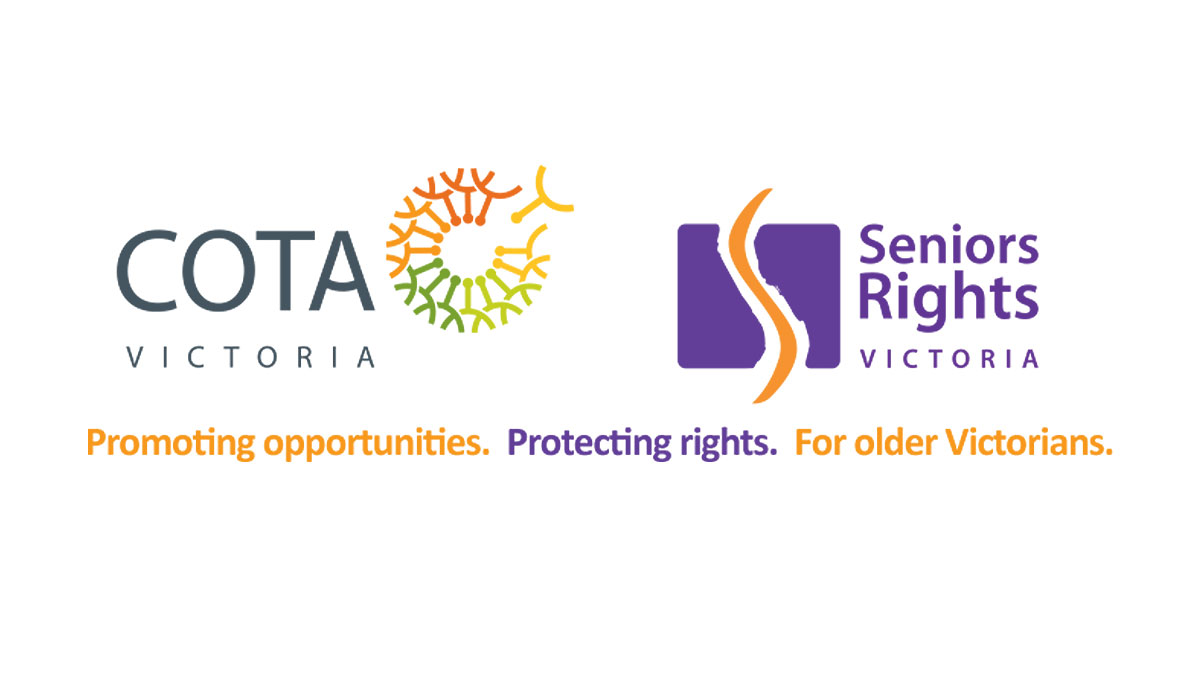Powers of Attorney, executors, advanced care plans – there can be a lot of legal information to deal with later in life. Find out about legal advice for seniors here, including information on wills, power of attorneys, elder abuse and what to do after someone dies.
Jump to a section:
Power of Attorney | Wills and Executors | Death of a Partner | Elder Abuse | End of Life | Organisations
Power of Attorney
An ‘enduring power of attorney’ is a legal document that lets you appoint someone to act on your behalf when you’re unable to. It allows them to make decisions around your finances, housing or other personal matters.
A ‘medical treatment decision maker’ is someone you appoint to make medical decisions for you. This can be a different person to your enduring power of attorney. You can read more about this under Advanced Care Planning.
To make a power of attorney, you need to be over 18 and have decision-making capacity. You can only make one for yourself. It is very important you trust who you choose. The Office of the Public Advocate offers several guides to help you appoint a power of attorney. This includes one specifically for older people.
Wills
A will is a legal document that sets out what you want to happen to your property (called your ‘estate’) after you die. It names who is responsible for carrying this out (called the ‘executor’) and how you want this to happen. These instructions can include things like:
- what will happen to your assets
- whether you are an organ donor
- how you want your funeral to be held.
If you die without a will, the law decides how your assets are distributed. It does not take into account your personal wishes or situation.
You should update your will every few years, or whenever there are significant changes to your life.
Information for Executors
An executor is a person(s) or organisation who has been nominated in someone’s will. They are responsible for carrying out the deceased person’s final wishes. If there is no executor named in the will, the court will appoint one. This is often the beneficiary with the largest share of the estate.
Being an executor carries many responsibilities. It may require time off from work or out-of-pocket expenses. Settling an estate takes nine to twelve months on average. It may also involve dealing with lawyers, accountants, courts and other beneficiaries.
Organisations
The following organisations can provide more information and help with wills, estates or being an executor.
- Office of the Public Advocate
Phone 1300 309 337 from 9 am – 4.45 pm, Monday to Friday. - Legal Aid Victoria
Phone 1300 792 387 from 8 am – 6 pm, Monday to Friday. - State Trustees Victoria
Phone 1300 138 672 from 9 am – 5 pm, Monday to Friday. - Australian Red Cross’s National Solicitor Network
Phone 1800 811 700. - Supreme Court of Victoria
Phone (03) 8600 2000 from 9.30 am – 4 pm, Monday to Friday.
Death of a Partner
Many people struggle with legal, financial and administrative requirements when their partner dies. Death of a Partner is a free publication that can help guide you through the steps you need to take. There are handy checklists and contact details of important organisations. It includes information on:
- funerals, burials and cremation
- settling the estate
- accessing and closing accounts
- providing notification of the death
- looking after yourself.
You can download a digital copy here.
Elder Abuse
Elder abuse is any act which causes harm to an older person and is carried out by someone they know and trust, such as a family member or friend. The abuse may be physical, social, financial, psychological or sexual and can include mistreatment and neglect.
Seniors Rights Victoria
Seniors Rights Victoria (SRV) is a community legal centre and a program of COTA Victoria. They provide information, support, advice, casework and education to help prevent elder abuse. SRV offers a free and confidential helpline for Victorians 60+. Call 1300 368 821 Monday to Friday 10 am – 5 pm or visit SRV’s website.
End of Life
Advanced care planning lets you plan out your future health care needs. It allows you to let people know what you do and do not want, if you are unable to communicate your wishes. Find out more at Advanced Care Planning Australia or call them on 1300 208 582.
For information on other end of life options, including voluntary assisted dying, please visit our policy section on end of life.
Other Legal Organisations
Consumer Affairs Victoria
Consumer Affairs Victoria provides information on your rights within housing, products and services. Visit their website or call 1300 55 81 81 from 9 am – 5 pm, Monday to Friday.
Community Legal Centres
Community Legal Centres offer free legal services to the public. They offer legal information and initial advice. Each centre has its own eligibility for who they assist. Find one near you online or call the Federation of Community Legal Centres for assistance. Their phone line is 1300 792 387 and is open during business hours.
Legal Aid Victoria
Legal Aid Victoria has a wide range of free resources on their website. They also offer free legal advice services to people who need it most. Their service is available in several languages. Visit Legal Aid Victoria’s website or call 1300 792 387 from 8 am – 6 pm, Monday to Friday.
